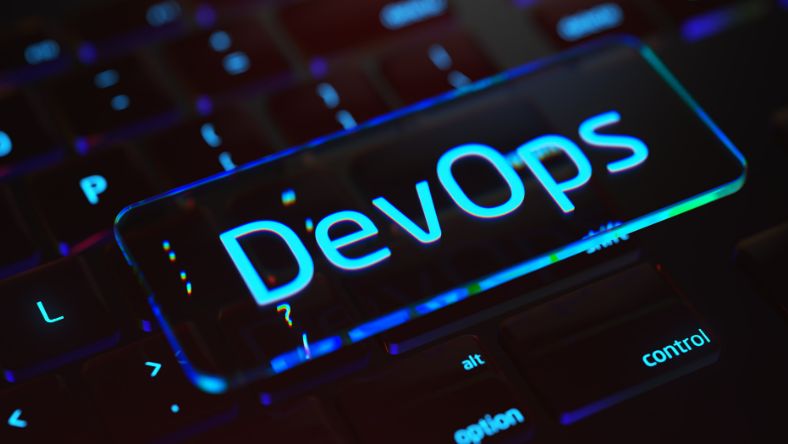DevOps With AWS

Contact Form
Overview
Students Prerequisites
Course Curriculum
Duration of the Course
Instructor Profile
Overview
DevOps with AWS integrates development and operations using AWS’s cloud-based tools and services. It emphasizes automation, continuous integration, and continuous delivery (CI/CD) to streamline software development and deployment. AWS provides scalable infrastructure, monitoring, and management tools, ensuring efficient collaboration and robust system security across global regions.
Students Prerequisites
- Basic knowledge of scripting or programming languages is beneficial.
- Understanding of fundamental concepts in cloud computing and system administration will be helpful.
Course Curriculum
Module 1: Introduction to DevOps and AWS
- What is DevOps?
- Principles and Practices
- Benefits and Challenges
- AWS Overview
- Key AWS Services for DevOps
- Regions and Availability Zones
- Setting Up AWS Free Tier Account
- Introduction to the AWS Management Console and CLI
Module 2: Version Control with Git
- Introduction to Git
- Installing Git
- Basic Commands:
init,clone,commit,push,pull,branch
- Git Collaboration
- Managing Branches and Merging
- Handling Conflicts
- GitHub/Bitbucket Integration with AWS CodeCommit
- Creating Repositories
- Managing Code with AWS CodeCommit
Module 3: CI/CD Pipelines with AWS
- Continuous Integration/Continuous Deployment (CI/CD) Concepts
- Importance of Automation in DevOps
- AWS CodePipeline
- Setting Up a CI/CD Pipeline
- Automating Build, Test, and Deploy Processes
- AWS CodeBuild
- Creating Build Projects
- Automating Tests
- AWS CodeDeploy
- Configuring Deployment Groups
- Blue/Green and Rolling Deployments
- Integration with External Tools (e.g., Jenkins, GitHub Actions)
Module 4: Infrastructure as Code (IaC)
- Introduction to IaC
- Benefits and Use Cases
- AWS CloudFormation
- Creating and Managing Stacks
- Writing YAML/JSON Templates
- AWS CDK (Cloud Development Kit)
- Setting Up and Using AWS CDK with Python/TypeScript
- Terraform Basics
- Installing and Setting Up Terraform
- Writing Basic
.tfFiles - Managing AWS Infrastructure with Terraform
Module 5: Containerization and Orchestration
- Introduction to Containers
- Benefits of Containerization in DevOps
- Docker Basics
- Installing Docker
- Writing Dockerfiles
- Docker Compose for Multi-Container Applications
- AWS Elastic Container Service (ECS)
- ECS Architecture
- Deploying Containers with ECS
- Amazon Elastic Kubernetes Service (EKS)
- Introduction to Kubernetes
- Setting Up and Managing Clusters with EKS
- Deploying and Scaling Applications with Kubernetes
Module 6: Monitoring and Logging
- AWS CloudWatch
- Setting Up Metrics and Alarms
- Log Monitoring and Analysis
- AWS CloudTrail
- Auditing API Calls and Events
- AWS X-Ray
- Tracing Distributed Applications
- Integrating Third-Party Monitoring Tools (e.g., Prometheus, Grafana)
Module 7: Configuration Management
- Introduction to Configuration Management
- Purpose and Tools (Chef, Puppet, Ansible)
- AWS Systems Manager
- Parameter Store and Secrets Manager
- Patch Management and Automation
- Using Ansible with AWS
- Writing Playbooks for AWS Resource Management
Module 8: Security in DevOps
- AWS Identity and Access Management (IAM)
- Managing Users, Groups, and Roles
- Policies and Permissions
- AWS Secrets Manager
- Storing and Rotating Secrets Securely
- AWS KMS (Key Management Service)
- Managing Encryption Keys
- Security Best Practices for CI/CD Pipelines
- Implementing Security Scans in DevOps Workflows
Module 9: Automation with AWS CLI and SDK
- AWS CLI Basics
- Installing and Configuring the AWS CLI
- Automating Tasks with AWS CLI Commands
- AWS SDK
- Introduction to AWS SDKs (e.g., Python
boto3, Node.js) - Writing Scripts to Manage AWS Resources
- Introduction to AWS SDKs (e.g., Python
Module 10: Advanced DevOps Practices with AWS
- Auto Scaling
- Configuring Auto Scaling Groups
- Scaling Policies (Dynamic and Predictive)
- Elastic Load Balancing (ELB)
- Configuring Application and Network Load Balancers
- AWS Lambda for Serverless DevOps
- Automating Deployment Tasks with Lambda
- Event-Driven Automation
- Integrating AWS EventBridge
Module 11: DevOps Cost Optimization
- AWS Cost Explorer
- Analyzing Cost and Usage
- AWS Trusted Advisor
- Cost and Performance Recommendations
- Spot Instances and Savings Plans
- Optimizing Resource Utilization
Module 12: Capstone Projects
- Project 1: Deploy a Multi-Tier Application
- Use Terraform for IaC
- Set Up CI/CD with AWS CodePipeline
- Use ECS for Containerized Deployment
- Project 2: Serverless Application Deployment
- Build an Event-Driven Application with AWS Lambda, S3, and API Gateway
- Monitor with AWS CloudWatch
- Project 3: Kubernetes Deployment with EKS
- Deploy a Scalable Application on EKS
- Use Jenkins for CI/CD
- Project 4: Implement End-to-End Monitoring and Security
- Use CloudWatch, CloudTrail, and X-Ray
- Set Up Secure CI/CD Pipelines with IAM and Secrets Manager
Duration of the Course
40 Days (also available fast track course with short term duration)
- Flexible Schedules
- Live Online Training
Instructor Profile
- Training by highly experienced and certified professionals
- No slideshow (PPT) training, fully Hand-on training
- Interactive session with interview QA’s
- Real-time projects scenarios & Certification Help
- 24 X 7 Support
